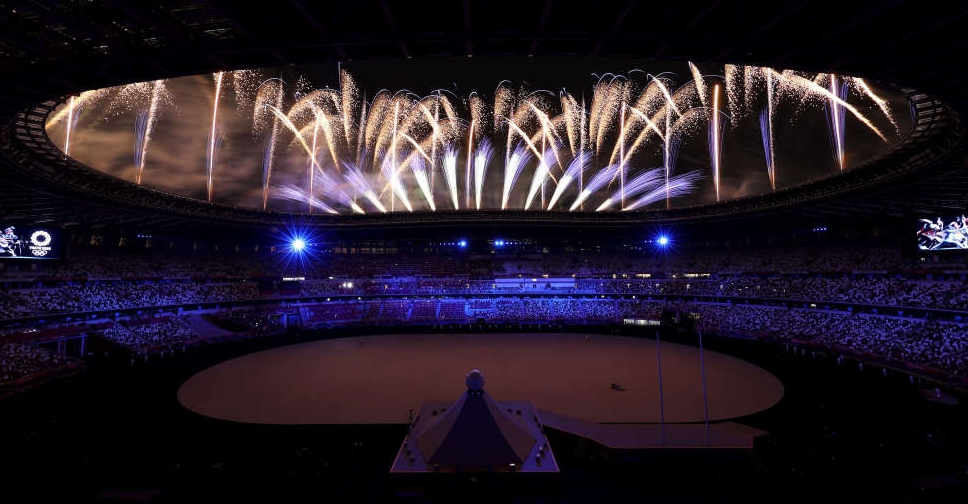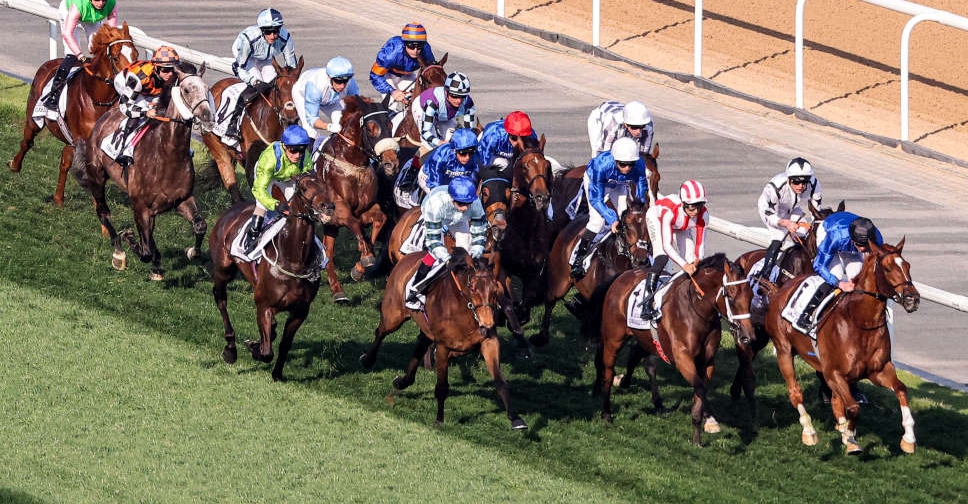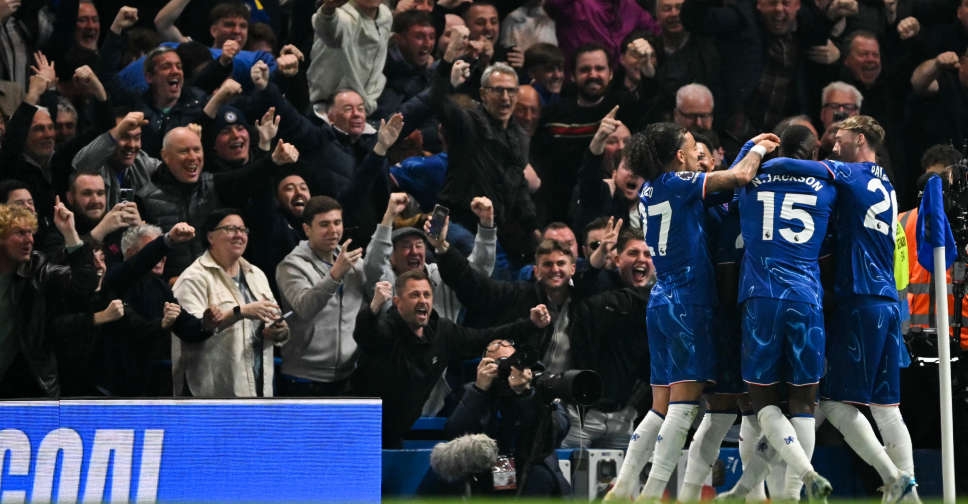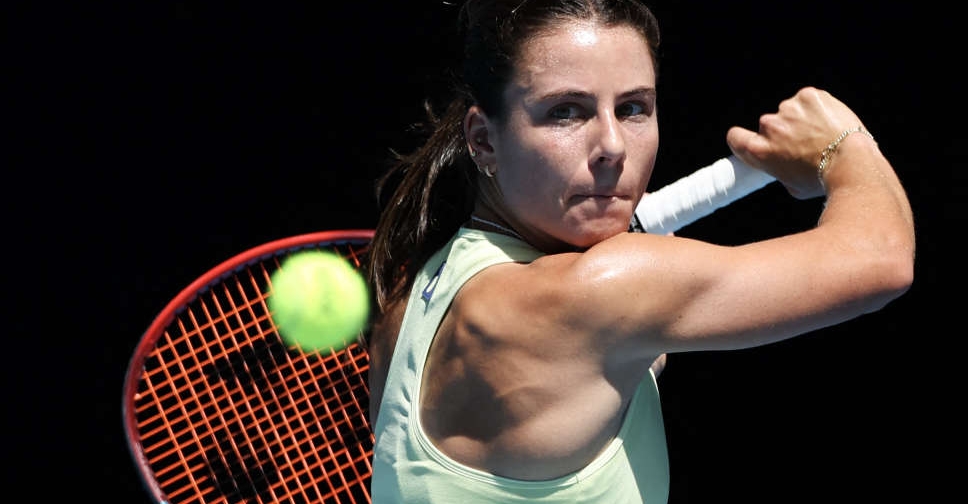
The Tokyo Olympics opened on Friday with fireworks illuminating an empty stadium and a moment of silence to honour those lost to COVID-19, with a nod to Japanese tradition represented by wooden Olympic rings linked to the 1964 Games.
The opening video featured at the stadium recapped Japan's path to the Games and the challenges the world has faced since the selection of the Japanese capital as host in 2013.
It showed how in 2020 the coronavirus struck, with lockdowns forcing the unprecedented postponement only four months before the Games were supposed to open, setting off a roller-coaster period of uncertainty and preparations in isolation for the athletes.
Some of them are expected to use the ceremony to make statements about equality and justice and several nations will be represented by a man and a woman after the organisers changed their rules to allow two flagbearers.
ECHO OF '64
Japan had billed the Olympics as an echo of the 1964 Tokyo Games, which marked the country's return to the world stage after its devastating World War Two defeat, but this time showcasing its recovery from the 2011 earthquake, tsunami and nuclear crisis.
In the segment highlighting the impact of the pandemic on the athletes and people around the world unable to see the Olympics in person, the organisers showed a lone female athlete, Japanese boxer nurse Arisa Tsubata, training in the darkness, running silently on a treadmill.
Apart, but not alone.
— The Olympic Games (@Olympics) July 23, 2021
With the emergence of COVID-19, many athletes had to train for this moment in isolation. But they were always connected by their hope and shared passion. ❤️#StrongerTogether #OpeningCeremony pic.twitter.com/7teAvhljXe
Dozens of dancers moved about while projection mappings showed connections between them, highlighting how people around the world, including the athletes, have formed fresh connections online during the lockdown.
Japanese Emperor Naruhito and International Olympic Committee (IOC) President Thomas Bach, both masked, entered the stadium and bowed to each other before sitting down socially distanced.
The giant wooden rings were carried onto the field on a platform, guided by the light of many paper lanterns. With the pull of a rope, the rings were transformed into the Olympic symbol.
The rings make use of lumber from thinned trees that grew from the seeds borne by athletes from each of the participating nations to the previous Olympics hosted by Tokyo.
The performance of putting the rings together began with the "Kiyari Uta," a traditional work song that has been sung for centuries by labourers to synchronise their efforts in rhythmic spectacle.
Tokyo 1964 ➡️ #Tokyo2020
— The Olympic Games (@Olympics) July 23, 2021
The wood used to make the Olympic Rings comes from trees grown from seeds brought by international athletes the last time Tokyo hosted the Olympic Games. 😍🌳#StrongerTogether #OpeningCeremony pic.twitter.com/DFeMAmF28Y
NO-FRILLS OPENING
The opening took place without the usual mass choreography, huge props and cornucopia of dancers, actors and lights associated with past celebrations.
A vastly smaller number of athletes marched in the teams' parade, with many planning to fly in just before their competitions with plans to leave shortly after to avoid infections.
Only 15 global leaders were in attendance, along with Emperor Naruhito, who will formally open the Games as his grandfather Hirohito did in 1964, and U.S. First Lady Jill Biden.
The ceremony was marked by high-profile absences, including former Prime Minister Shinzo Abe, who wooed the Games to Tokyo. A number of top sponsors and economic leaders will also stay away, highlighting strong opposition to the sporting extravaganza in COVID-fatigued Japan.
Hundreds of protesters carrying placards that read “Lives over Olympics” protested around the venue. The protesters, a mix of people in white surgical masks, yelled “Stop the Olympics” as they marched.
Only a third of the nation have had even one dose of vaccines, prompting worries the Games could become a super-spreader event. More than 100 people involved with the Olympics have already tested positive.
The Olympics have been hit by a string of scandals, including the exit of senior officials over derogatory comments about women, jokes about the Holocaust and bullying.
The Games run until Aug. 8.
About 11,000 athletes from 204 national Olympic committees are expected, along with a team of refugee athletes competing under the Olympic flag.
For the second time in its history, the Olympic Games welcome the IOC Refugee Olympic Team!❤️
— The Olympic Games (@Olympics) July 23, 2021
Leading the delegation into the stadium are the flagbearers, swimmer @YusraMardini and marathon runner Tachlowini Gabriyesos.#StrongerTogether #OpeningCeremony #EoR @RefugeesOlympic pic.twitter.com/ftVl2Kzd4H





 De Bruyne to leave Man City at the end of season
De Bruyne to leave Man City at the end of season
 Dubai World Cup to kick off on Saturday
Dubai World Cup to kick off on Saturday
 Chelsea climb back into top four with 1-0 win over Spurs
Chelsea climb back into top four with 1-0 win over Spurs
 Navarro says players' demand for more prize money is about fair treatment
Navarro says players' demand for more prize money is about fair treatment
 Arsenal lose injured defender Gabriel for rest of the season
Arsenal lose injured defender Gabriel for rest of the season
